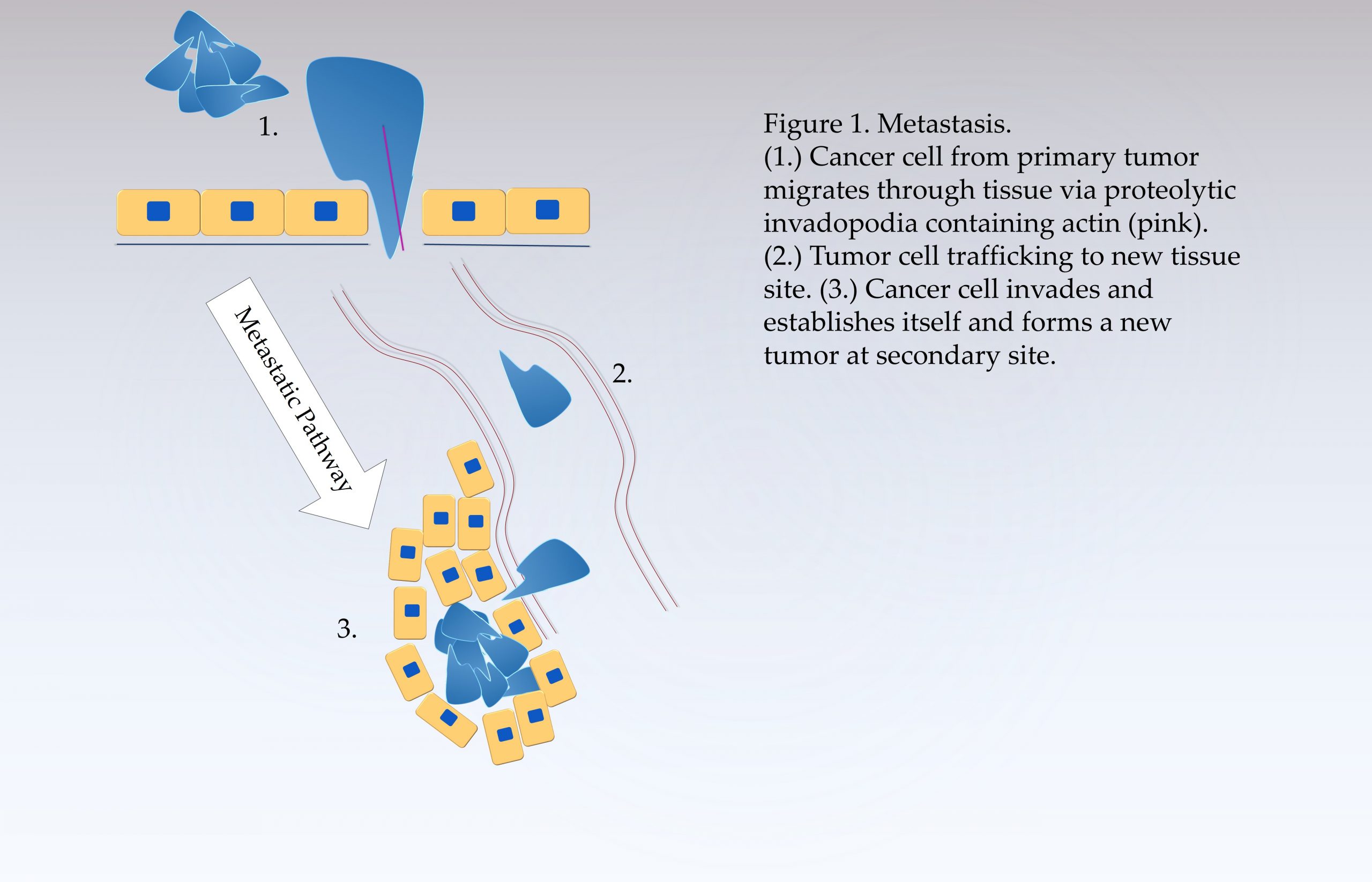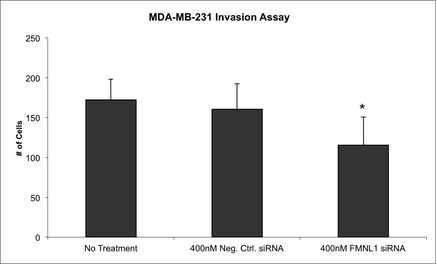Eric received his B.S. in Biology from Maryville University in St. Louis in May 2013. There, under the tutelage of Dr. Gabriel Colbeck, Eric studied Black-capped and Carolina Chickadees. He tried to determine the ratio between black-capped, Carolina, and back-capped/Carolina hybrids, assess the impact of bird song on reproductive success amongst these groups, and ascertain whether the zone of hybridization between the Black-capped Chickadee and Carolina Chickadee populations is moving. His interest in SENS Research Foundation’s approach to regenerative medicine and age-related therapies led him to join the 2013 SRF Summer Intern Program in the State University of New York Medical Center (SUNY Upstate) in Syracuse, New York. As an intern in Dr. Scott Blystone’s laboratory, Eric studied ways to inhibit tumor cell metastasis.
Inhibition of Breast Cancer Cell Metastasis
Breast cancer is one of the most common cancers and a leading cause of death in women. The metastatic spread of cancer cells is the most dangerous characteristic of the disease, accounting for approximately ninety percent of breast-cancer-related deaths. Metastasis enables deadly tumors to develop in such secondary sites in the body as bones, the brain, or the lungs. The actin cytoskeleton plays a crucial role in enabling cancer cells to migrate from the primary tumor and invade another tissue to form a secondary tumor.

Figure 1.
Actin fibers are a key component of the proteolytic invadopodia used by breast cancer cells during metastasis. A formin protein known as FMNL1 plays a crucial role in actin assembly during macrophage migration and has been implicated in proteolytic invadopodia as well. My summer project tested whether or not inhibition of FMNL1 function in breast cancer cells MDA-MB-231 would limit their metastatic capabilities.
I attempted to lower FMNL1 protein levels in MDA-MD-231 cells by using a process known as RNA interference (RNAi), a technique that can be used to selectively remove a specific RNA transcript from cells. Once I confirmed that FMNL1 protein levels were reduced, I tested the invasive capability of the cells. RNAi-treated cells were placed on an artificial basement membrane, and I measured the number of cells that were able to move through the membrane. Fewer FMNL1 siRNA-treated cells were able to penetrate the membrane compared to cells treated with a control siRNA construct.

Figure 2. Inhibition of FMNL1 reduces MDA-MB-231 invasiveness.
Number of invading cells were counted in 3 replicates of each condition. FMNL1 siRNA treatment causes a significant decrease in invasiveness by t-test comparison (*). Error bars indicate standard deviation.
These results lend support to our hypothesis that FMNL1 plays a role in metastasis of MDA-MB-231 cells. Further studies are planned to learn more about the role FMNL1 plays in cell movement, determine whether FMNL1 is both necessary and sufficient for breast cancer cell metastasis, and verify the role of FMNL1 in tumor metastasis in an animal model.
Future Plans:
Currently working at Monsanto, Eric plans to continue conducting SENS-related research as a graduate student in the fall of 2014. He hopes to make an impact in the field of regenerative medicine developing new biomedical therapies in the near future.


